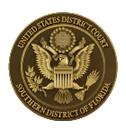To promote pro bono legal services as a critical way in which to empower survivors of domestic violence, the President signed into law S. 717 (Public Law 115-237) the “Pro bono Work to Empower and Represent Act of 2018 or the POWER Act.” The POWER Act requires the chief judge for each judicial district to host, at least annually, a public event to promote pro bono legal services to empower survivors of domestic violence, dating violence, sexual assault, and stalking. Communities, by providing awareness of pro bono legal services and assistance to survivors of domestic violence, dating violence, sexual assault, and stalking, will empower those survivors to move forward with their lives.
Proactive efforts should be made available in all forums to provide pro bono legal services and eliminate the violence that destroys lives and shatters families. Pro bono assistance can help fill this need by providing not only legal representation, but also access to emergency shelter, transportation, and childcare. P.L. 115-237 cites the ABA Model Rules of Professional Conduct commentary stating that “every lawyer, regardless of professional prominence or professional workload, has a responsibility to provide legal services to those unable to pay, and personal involvement in the problems of the disadvantaged can be one of the most rewarding experiences in the life of a lawyer.” A dedicated army of pro bono attorneys focused on this mission will inspire others to devote efforts to this cause and will raise awareness of the scourge of domestic violence, dating violence, sexual assault, and stalking throughout the country.
